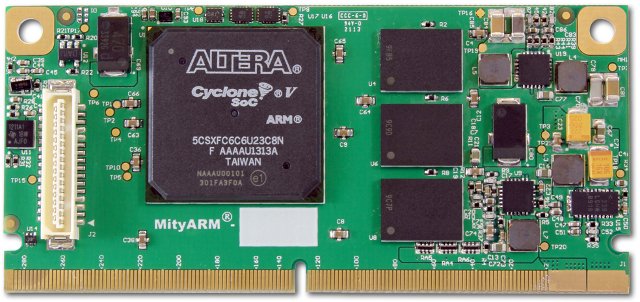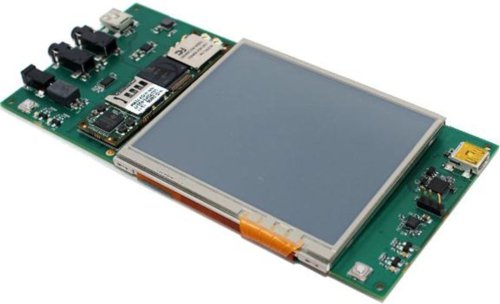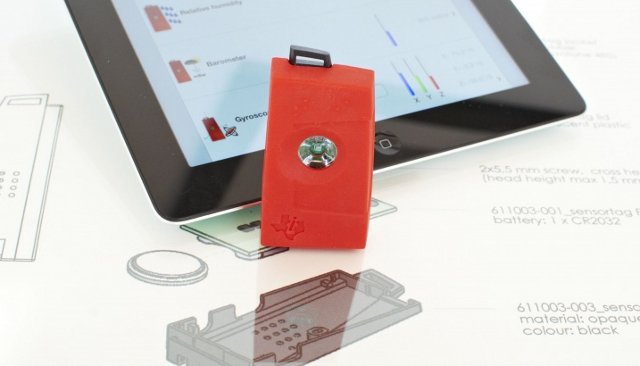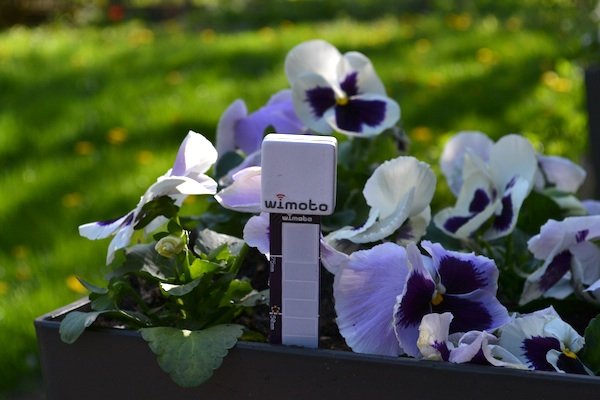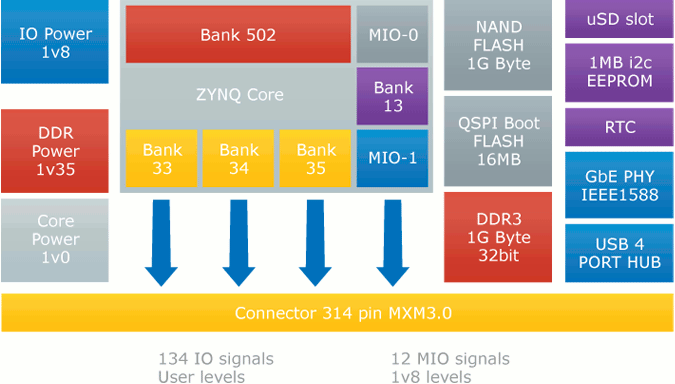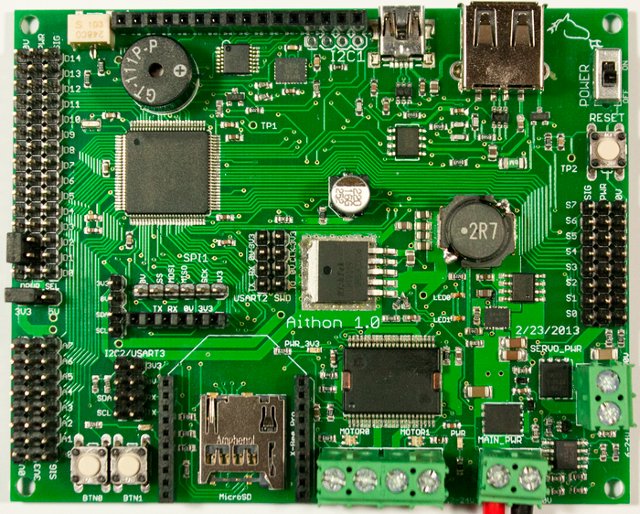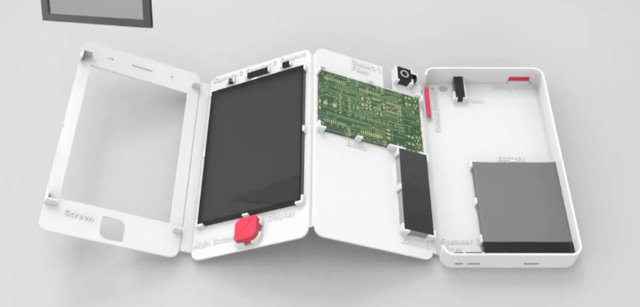Earlier this week, I wrote about EnSilica eSi-ZM1, a system-on-module based on Xilinx Zynq7000 Extensible Processing Platform that comes with a dual core ARM Cortex A9 and FPGA fabric. It turns out Xilinx is not the only game in town, and Altera’s Cyclone V SoC, announced last December, also includes a dual core ARM Cortex A9 processor with Altera FPGA logic, and Critical Linux recently announced MityARM-5CSX computer-on-module based on this platform. Target applications include machine vision, scientific imaging, motor control, medical imaging and instrumentation, test and measurement, industrial instrumentation, as well as a military & aerospace. MityARM-5CSX specifications: SoC – Altera Cyclone V SX-U672 with FPGA logic and dual-core ARM Cortex-A9 up to 800MHz System Memory – 1GB DDR3 RAM, and 256MB DDR3 FPGA RAM (optional) Storage – 32MB QPSI NOR flash FPGA I/O fabric: PCIe hard core Up to 145 user-programmable I/O lines (including several 875MHz SerDes lanes) […]
Gumstix Alto35 Customizable Touchscreen Board
A few months ago, Gumstix introduced Geppeto, a web platform that allows you to design and order your own baseboard for Gumstix Overo systems-on-module within minutes. The company has just announced Alto35, an expansion board built entirely with Geppetto. The Alto35 replaces Palo35 Overo-series expansion board with the same features, but adding the possibility of customizing the board via Geppetto. Alto34 expansions board features the following: 3.5″ LCD resistive touch screen Stereo audio in/out jacks 3D accelerometer (STMicro LIS33DE) RC servo USB – 2x USB mini-B ports, including console port (FT232RQ USB UART) LEDs in 4 different colors, 2 tactile switches. 2×70-pin AVX Headers compatible with Overo COMs. Power – 3.5V-5V All Overo computers-on-module are compatible with Alto35 board, so you can just use existing software solutions such as Linaro Ubuntu, Robot Operating System, and the Yocto Project. Alto35 is available for $89 including the display (not the Overo module), […]
$25 Texas Instruments SensorTag is a Bluetooth LE Devkit with 6 Sensors
Yesterday, I wrote about Wimoto Motes, tiny Bluetooth LE devices with several sensors that can be controlled and monitored via an iOS app, and soon by an Android app, as well as Linux devices. Each mote costs $39 plus shipping, and one commenter mentioned the price may be a bit too high. A Google search for “bluetooth sensor” immediately brings TI SensorTag, which looks somewhat similar, except it is a Bluetooth LE development kit, includes 6 sensors (but no light sensor), and only costs $25 including shipping. SensorTag Specifications: Bluetooth 4.0 low energy (CC2541) SoC 6 sensors connected via I2C: IR Temperature sensor (TI TMP006) Humidity sensor (Sensirion SHT21) Pressure sensor (Epcos T5400) Accelerometer (Kionix KXTJ9) Gyroscope (InvenSense IMU-3000) Magnetometer (Freescale MAG3110) Power – Single cell coin cell battery (CR2032), quiescent current consumption of 8uA, allowing years of battery life. FCC, IC and ETSI certified solution Dimension – 71.2x36x15.5 mm, […]
$32 iPush Wi-Fi DLNA / Miracast Adapter for Android
Last time I wrote about Miracast / DLNA dongles, the price was about $55, but today I’ve found a new device closer to my target price ($25) with IPUSH Miracast adapter that sells for $31.90 on DealExtreme. [Update: Several users report it’s only a DLNA dongle, and it does not support Miracast yet] Here are the specifications according to DealExtreme: SoC – Allwinner A10s Cortex A8 + Mali-400 GPU Wi-Fi 802.11b/g/n USB – 1x micro USB port for power Video Output – HDMI 1.4 Supports DLNA and Miracast mode Power – 5V / 0.5A The device comes with an HDMI cable and a micro USB cable used to connect the device to your TV HDMI and USB ports, or if your TV lacks USB, a USB power adapter. However, I’ve done a little more research, and it turns out iPush is also a product designed by Action Semi, that just […]
Wimoto Motes are Tiny Bluetooth Sensors for iOS, Android, and Linux Devices
Wimoto Motes are small (30x30x8mm) wireless sensors that communicate temperature, humidity, soil moisture… values to your iPhone, iPad, Android, and Linux (yes, including the Raspberry Pi) devices via Bluetooth. They are said to last for about a year on a single CR2032 battery and don’t require an Internet connection to work, but you can still upload your data to Wimoto cloud service via the app, or use an optional mote.cloud bridge to do it for you in realtime via Wifi. There are currently 4 Motes: Climote – Measures light (0 to 60,000 lux), temperature (-25 to 85 C) and humidity. Used to monitor a room environment (bedroom, cellar, greenhouse,…), and tell you if you need to make adjustment Growmote – Measures sunlight (0 to 60,000 lux), soil moisture (5 levels) and temperature (-25 to 85 C), to make sure your lawn or flowers are not thirsty. Thermote – Measures an object temperature […]
EnSilica eSi-ZM1 System-on-Module Features Xilinx Zynq XC7Z020 SoC
EnSilica has introduced the eSi-ZM1 SoM powered by Zynq ZC7Z020 SoC featuring 2 ARM Cortex A9 core, and an Artix-7 FPGA with 85K logic cells. The module also comes with 1GB RAM, 1GB NAND flash, and 16MB QSPI Boot Flash. ZC7Z020 SoC is notably used in ZedBoard development board, so if you have developed an application around this board, and want to commercialize it, using eSi-ZM1 module with your own custom baseboard could be an option. eSi-ZM1 system-on-module specifications: SoC – Xilinx Zynq XC7Z020 dual-core Cortex A9 processor @ 666 MHz, 85 K logic cells, 560 KB block RAM, and 220 DSP Slices. CLG484 package type System Memory – 1 GB, 1.35 V, 32-bit wide DDR3 SDRAM @ 533 MHz Storage: 1 GB, 1.8 V, 8-bit wide NAND FLASH 16 MB QSPI flash 1 or 2 Kb I2C EEPROM (and not 1MB as mentioned in the block diagram ) uSD card […]
Aithon Motor Control Board Runs Chibios/RT RTOS
The Aithon board is a board powered by an STM32 Cortex M4 MCU destined at controlling motors and robotics applications. The board runs Chibios/RT, an open source RTOS, and a set of libraries are also provided to make programming the 2-channel motor driver, and other peripherals/sensors easier. Here are the specifications of the board: MCU – STMicroelectronics STM32F407 ARM Cortex-M4 @ 168 MHz, FPU, 512KB flash and 192KB RAM, up to 17 timers, an RTC, and 12-bit ADC I/O (All digital I/Os are 5V tolerant): 15 GPIO 8 ADC inputs and 8 PWM servo outputs Up to 3 USART (one shared with 1 I2C port + XBee) Up to 4 I2C (split between two independent buses) 1 SPI header 1 SWD header 1 12-bit DAC output (shared with SPI SCLK) USB – mini-USB (device) and standard USB (host) ports Expansion Headers: XBee socket Bluetooth header for optional Roving Networks RN42 […]
The Smarter Phone is Upgradeable Just Like a PC
The “Smarter Phone“, which is just a concept right now, would allow users to easily upgrade or repair it by changing key modules. Your phone currently has a 5MP camera, and you’ll like to upgrade for a 12MP. No problem, just replace the camera module. We’re now in 2016. The quad core processor in your smartphone feels really slow, and memory is tight, so you’d like to replace it with the latest Exynos 7 20-core processor with extra-large.big.medium.little.tiny processing technology, and finally get 8GB RAM. You can do so by just updating the CPU module, and on and on. Basically, your smartphone would be just as upgradeable as your PC, which is probably timely since in a couple of years, your phone may become your PC. This concept designed by Bernat Lozano (Product Designer), and Rocío García (Architect & Product Designer), would help save consumers’ money, and reduce e-waste, as they […]


